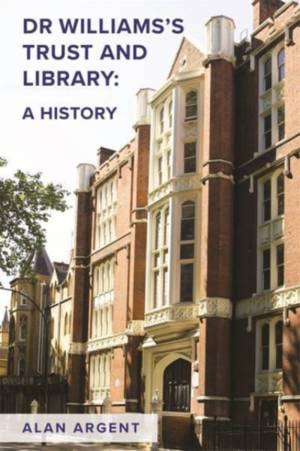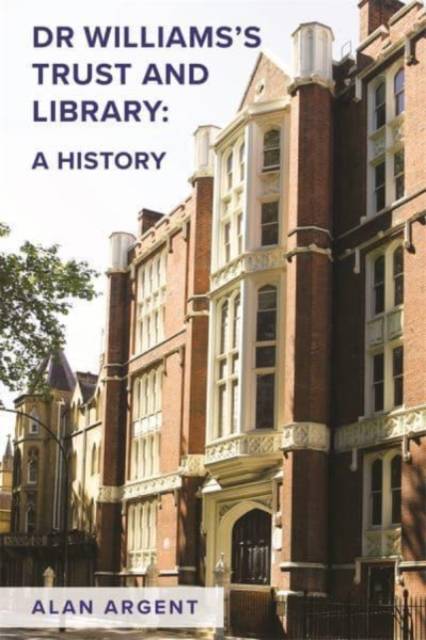
Je cadeautjes zeker op tijd in huis hebben voor de feestdagen? Kom langs in onze winkels en vind het perfecte geschenk!
- Afhalen na 1 uur in een winkel met voorraad
- Gratis thuislevering in België vanaf € 30
- Ruim aanbod met 7 miljoen producten
Je cadeautjes zeker op tijd in huis hebben voor de feestdagen? Kom langs in onze winkels en vind het perfecte geschenk!
- Afhalen na 1 uur in een winkel met voorraad
- Gratis thuislevering in België vanaf € 30
- Ruim aanbod met 7 miljoen producten
Zoeken
Omschrijving
The library contains the fullest collection of material relating to English Protestant Dissent. Opening in the City of London in 1730, it moved to Bloomsbury in the 1860s. Williams and his first trustees had a vision for Protestant Dissent which included maintaining connections with Protestants overseas. The charities espoused by the trust extended that vision by funding an Irish preacher, founding schools in Wales, sending missionaries to native Americans, and giving support to Harvard College. By the mid-eighteenth century, the trustees had embraced unitarian beliefs and had established several charities and enlarged the unique collection of books, manuscripts and portraits known as Dr Williams's Library. The manuscript and rare book collection offers material from the sixteenth to the twentieth centuries, with strengths in the early modern period, including the papers of Richard Baxter, Roger Morrice, and Owen Stockton. The eighteenth-century archive includes the correspondence of the scientist and theologian Joseph Priestley. The library also holds several collections of importance for women's history and English literature. The story of the trust and library reveals a rare example of private philanthropy over more than three centuries, and a case study in dissenting enterprise. Alan Argent illuminates key themes in the history of nonconformity; the changing status of non-established religions; the voluntary principle; philanthropy; and a lively concern for society as a whole.
Specificaties
Betrokkenen
- Auteur(s):
- Uitgeverij:
Inhoud
- Aantal bladzijden:
- 360
- Taal:
- Engels
Eigenschappen
- Productcode (EAN):
- 9781783277025
- Verschijningsdatum:
- 6/05/2022
- Uitvoering:
- Hardcover
- Formaat:
- Genaaid
- Afmetingen:
- 156 mm x 234 mm
- Gewicht:
- 671 g

Alleen bij Standaard Boekhandel
+ 418 punten op je klantenkaart van Standaard Boekhandel
Beoordelingen
We publiceren alleen reviews die voldoen aan de voorwaarden voor reviews. Bekijk onze voorwaarden voor reviews.









